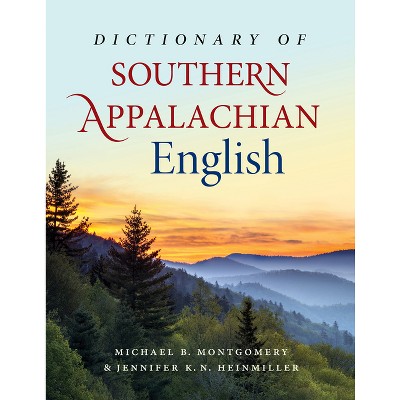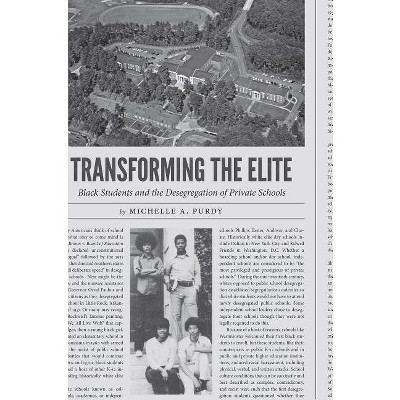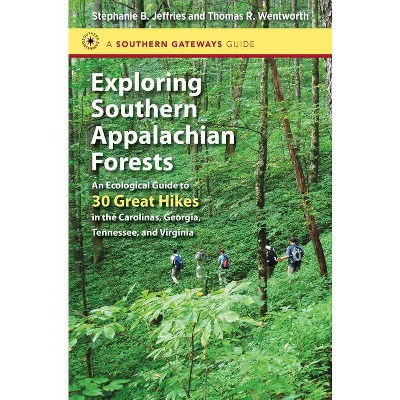Sponsored

Transforming the Appalachian Countryside - by Ronald L Lewis (Paperback)
In Stock
Sponsored
About this item
Highlights
- In 1880, ancient-growth forest still covered two-thirds of West Virginia, but by the 1920s lumbermen had denuded the entire region.
- Author(s): Ronald L Lewis
- 368 Pages
- History, United States
Description
About the Book
In 1880, ancient-growth forest still covered two-thirds of West Virginia, but by the 1920s lumbermen had denuded the entire region. Historian Ronald Lewis explores the transformation in these mountain counties precipitated by deforestation that left behind both environmental and human poverty. 32 illustrations.Book Synopsis
In 1880, ancient-growth forest still covered two-thirds of West Virginia, but by the 1920s lumbermen had denuded the entire region. Ronald Lewis explores the transformation in these mountain counties precipitated by deforestation. As the only state that lies entirely within the Appalachian region, West
Virginia provides an ideal site for studying the broader social impact of deforestation in Appalachia, the South, and the eastern United States.
Most of West Virginia was still dominated by a backcountry economy when the industrial transition began. In short order, however, railroads linked remote mountain settlements directly to
national markets, hauling away forest products and returning with manufactured goods and modern ideas. Workers from the countryside and abroad swelled new mill towns, and merchants ventured into
the mountains to fulfill the needs of the growing population. To protect their massive investments, capitalists increasingly extended control over the state's legal and political systems.
Eventually, though, even ardent supporters of industrialization had reason to contemplate the consequences of unregulated exploitation. Once the timber was gone, the mills closed and the railroads pulled up their tracks, leaving behind an environmental disaster and a new class of marginalized rural poor to confront the worst depression in American history.
Review Quotes
"A major scholar of Appalachian history has brought together, synthesized and made sense of much of the debate and literature that have characterized the field of Appalachian history for the past two decades. . . . A very fine book that will be of enormous use to Appalachian historians in the future." -- Journal of Social History
"A thorough and detailed account of the emergence, florescence, and decline of the timber industry in West Virginia, in particular in five of the state's Allegheny Highland counties." -- Environmental History
"A very useful book that will be of great value to historians of agriculture, but also to those interested in the history of American environment, politics, law, and Appalachia." -- Agricultural History Journal
"An important contribution to the growing body of scholarly writing that has been revising the idea of Appalachian exceptionalism for the past decade. . . . Will help banish forever the persistent social construct of a people and region somehow set apart from the major developmental currents of late-nineteenth- and early-twentieth-century industrial capitalism. . . . Meticulously researched, well written, and enhanced by dozens of poignant photographs. It is a welcome addition to the growing body of literature on the dynamism of a rural-industrial society historically dismissed as static." -- Journal of Southern History
"Lewis's superb study of the logging industry in West Virginia . . . provides the best account yet of how industrialization transformed the Appalachian forests at the turn of the century." -- Journal of American History
"The most important recent book on Appalachian society. . . . Lewis's book stands virtually alone." -- American Historical Review
"The story of the deforestation of the mountains is a drama of monumental tragedy and waste. In Lewis's hands that story comes alive with meaning for Appalachia today. . . . A book that everyone interested in the process of development in the mountains should read -- and read again." -- Journal of Appalachian Studies
Shipping details
Return details
Frequently bought together


Trending Non-Fiction















